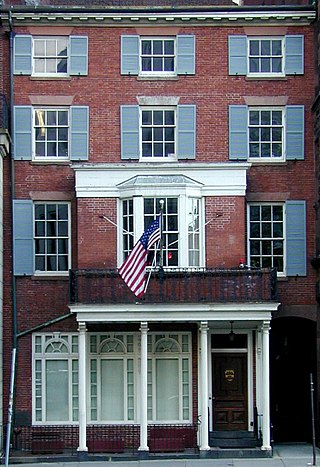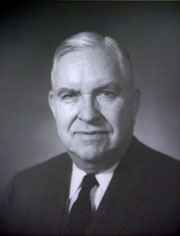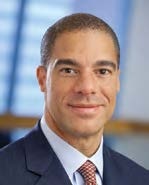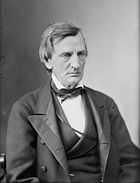In its most general sense, the practice of law involves giving legal advice to clients, drafting legal documents for clients, and representing clients in legal negotiations and court proceedings such as lawsuits, and is applied to the professional services of a lawyer or attorney at law, barrister, solicitor, or civil law notary. However, there is a substantial amount of overlap between the practice of law and various other professions where clients are represented by agents. These professions include real estate, banking, accounting, and insurance. Moreover, a growing number of legal document assistants (LDAs) are offering services which have traditionally been offered only by lawyers and their employee paralegals. Many documents may now be created by computer-assisted drafting libraries, where the clients are asked a series of questions that are posed by the software in order to construct the legal documents. In addition, regulatory consulting firms also provide advisory services on regulatory compliance that were traditionally provided exclusively by law firms.

The American Bar Association (ABA) is a voluntary bar association of lawyers and law students; it is not specific to any jurisdiction in the United States. Founded in 1878, the ABA's stated activities are the setting of academic standards for law schools, and the formulation of model ethical codes related to the legal profession. As of fiscal year 2017, the ABA had 194,000 dues-paying members, constituting approximately 14.4% of American attorneys. In 1979, half of all lawyers in the U.S. were members of the ABA. The organization's national headquarters are in Chicago, Illinois, and it also maintains a significant branch office in Washington, D.C.

Douglas Howard Ginsburg is an American lawyer, jurist, and academic who serves as a senior judge on the U.S. Court of Appeals for the District of Columbia Circuit. He was appointed to that court in October 1986 by President Ronald Reagan, and served as its chief judge from 2001 until 2008. In October 1987, Reagan announced his intention to nominate Ginsburg as an associate justice of the United States Supreme Court. But Ginsburg withdrew his name from consideration before being formally nominated, after news reports that he had smoked marijuana in the past created controversy.

Robert Allen Katzmann was a United States circuit judge of the United States Court of Appeals for the Second Circuit. He served as chief judge from September 1, 2013, to August 31, 2020.

St. John's University School of Law is a Roman Catholic law school in Jamaica, Queens, New York, United States, affiliated with St. John's University.

The Boston Bar Association (BBA) is a volunteer non-governmental organization in Boston, Massachusetts, United States. With headquarters located at 16 Beacon Street in the historic Chester Harding House, across from the Massachusetts State House on Beacon Hill, the BBA has 13,000 members drawn from private practice, corporations, government agencies, legal aid organizations, the courts and law schools.

Erwin Nathaniel Griswold was an American appellate attorney and legal scholar who argued many cases before the U.S. Supreme Court. Griswold served as Solicitor General of the United States (1967–1973) under Presidents Lyndon B. Johnson and Richard M. Nixon. He also served as the dean of Harvard Law School for 21 years. Several times he was considered for appointment to the U.S. Supreme Court. During a career that spanned more than six decades, he served as member of the U.S. Commission on Civil Rights and as president of the American Bar Foundation.
The National Board of Trial Advocacy (NBTA) is a non-profit board certification organization in the United States which administers eight national board certification programs for attorneys in Civil Trial Law, Criminal Trial Law, Truck Accident Law, Family Trial Law, Civil Practice Advocacy, Social Security Disability Law, Complex Litigation, and Patent Litigation. Each practice area is managed by a specialty program commission of five leading practitioners. To become board-certified, an attorney must meet substantial professional requirements and undergo a peer review process. There are currently close to 2,000 attorneys who are certified by the NBTA. The organization is led by board of directors of noted trial lawyers, law professors, and judges.

The New York City Bar Association was founded in 1870 as a voluntary professional organization for lawyers in New York City. It is the country's oldest bar association, and with over 24,000 members, continues to be one of its largest and most influential.
Bernard Botein was a prominent New York City lawyer and judge, a legal reformer, a presiding justice of the New York State Supreme Court, Appellate Division, First Department, and a president of the New York City Bar Association.

Paul Jeffrey Watford is an American lawyer who served as a United States circuit judge of the United States Court of Appeals for the Ninth Circuit from 2012 to 2023. In February 2016, The New York Times identified Watford as a potential Supreme Court nominee to replace Justice Antonin Scalia.

The Los Angeles County Bar Association (LACBA) is a voluntary bar association with more than 16,000 members throughout Los Angeles County, California, and the world. Founded in 1878, LACBA has strived to meet the professional needs of lawyers, advance the administration of justice, and provide the public with access to justice.
The New York County Lawyers Association (NYCLA) is a bar association located in New York City.

Derek Anthony West is an American attorney and former government official, and the current Senior Vice President and chief legal officer of Uber. Before Uber, West was Associate Attorney General of the United States and general counsel of PepsiCo. West previously served as the Assistant Attorney General of the Civil Division, the largest litigating division in the Department of Justice.
Shirley Adelson Siegel was an American lawyer whose work as a housing activist and advocate spanned over seven decades. Siegel was the first head of New York State’s Civil Rights Bureau and served as New York State’s solicitor general. She turned 100 in July 2018.

Michael Hun Park is an American lawyer who serves as a United States circuit judge of the United States Court of Appeals for the Second Circuit.
Carey R. Dunne is an American attorney. He is known for leading the criminal investigation of Donald Trump for the office of the Manhattan District Attorney until his resignation from the case, alongside his colleague Mark F. Pomerantz, in February 2022. In that role, Dunne successfully argued Trump v. Vance before the United States Supreme Court in May 2020; the court held that President Trump was required to comply with a state grand jury subpoena for his tax returns. Prior to his service at the DA’s Office, Dunne was a longtime partner at Davis Polk & Wardwell, where he specialized in white collar criminal defense. Dunne is a past president of the New York City Bar Association.













